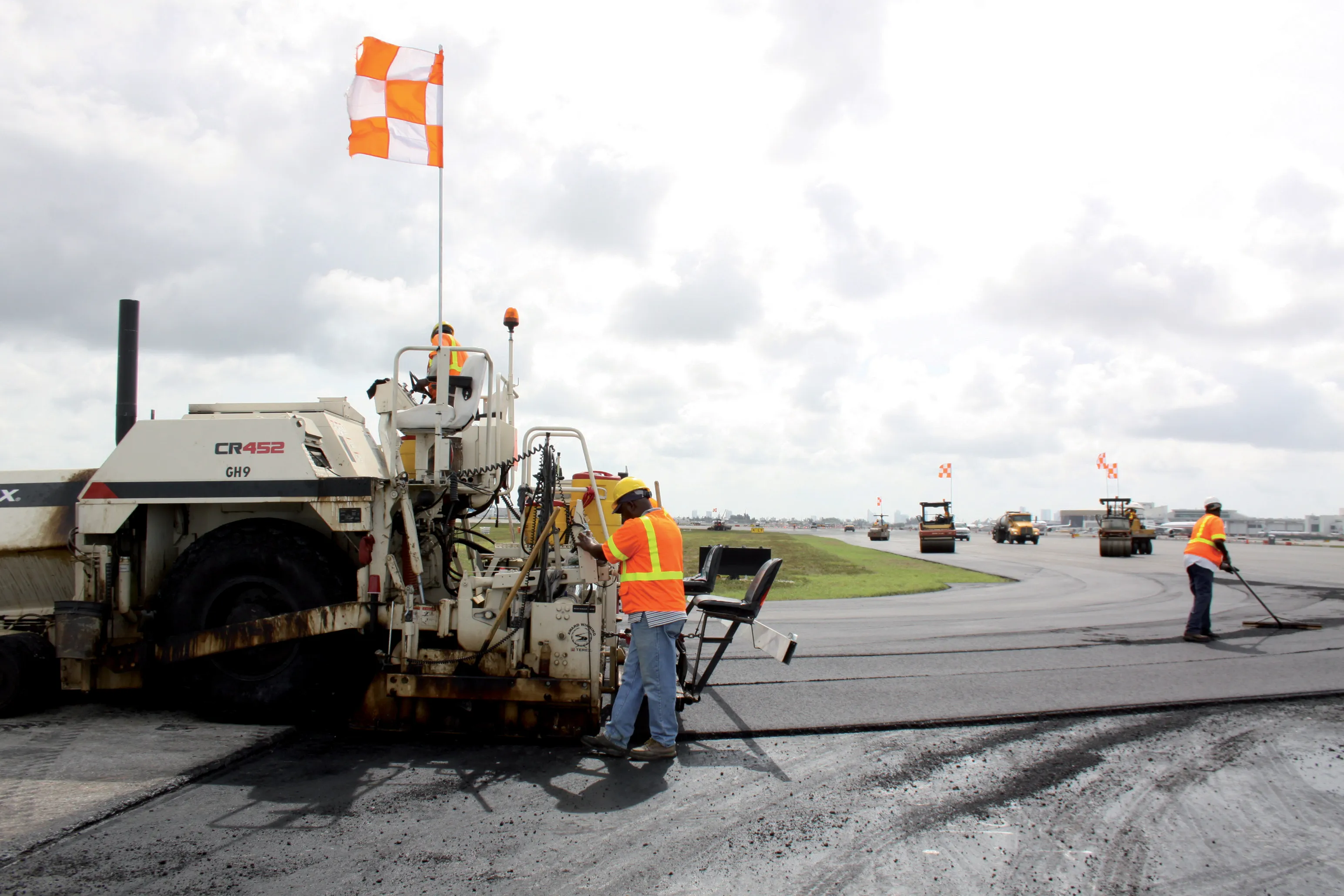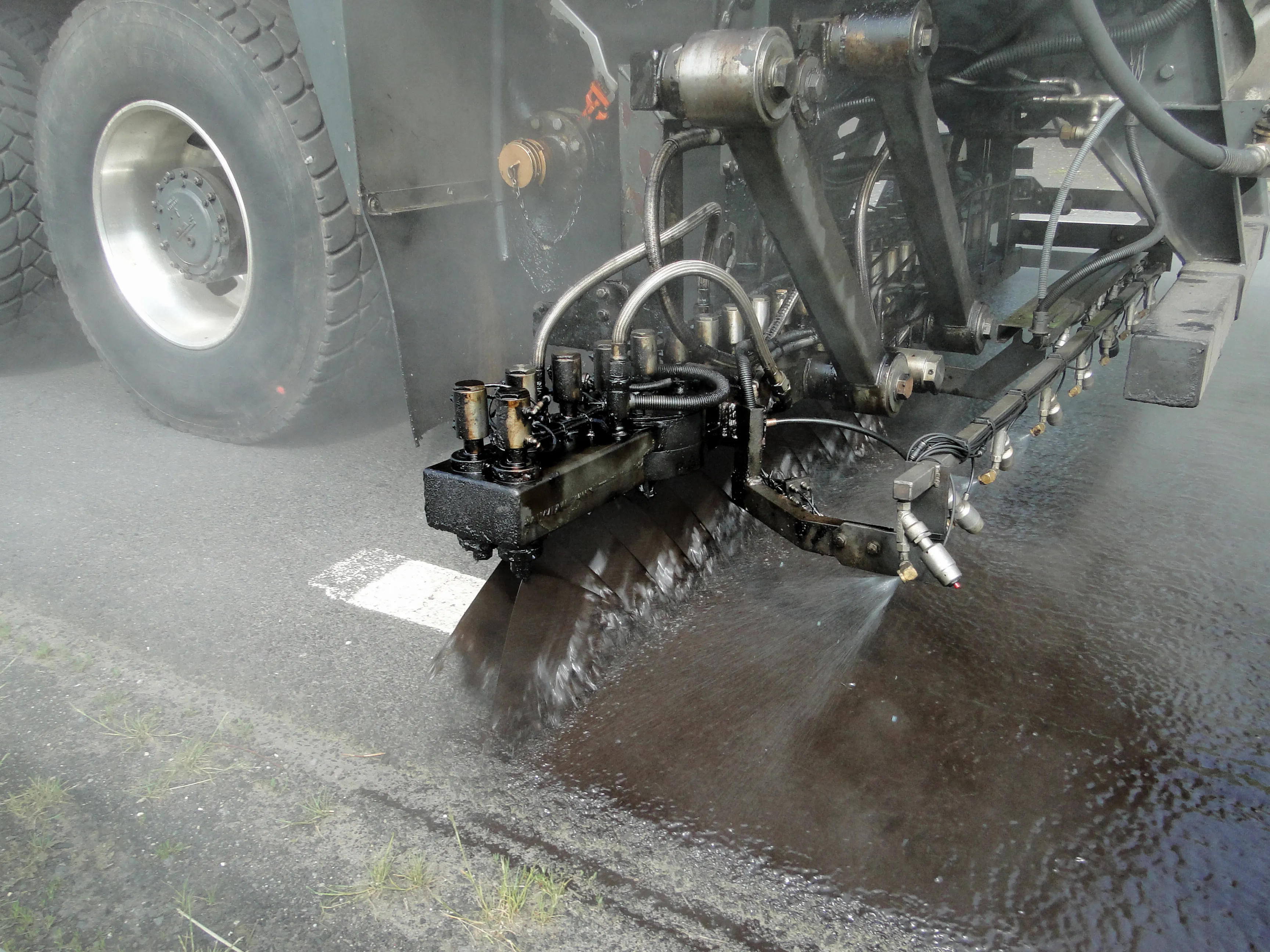Ireland is now using road recycling techniques in County Cork, with a Wirtgen WR2400 playing an important role. The 3.5km trial is pointing the way for future road rehabilitation projects in the country and is being carried out on a stretch of the busy N71, which links Cork with the peninsula in the south west of Ireland. This three-lane carriageway provides an important link as it is popular with tourists and the trial is being carried out between the towns of Inishannon and Bandon. The 3.5km trial has bee
July 17, 2012
Read time: 2 mins
Ireland is now using road recycling techniques in County Cork, with a 2395 Wirtgen WR2400 playing an important role. The 3.5km trial is pointing the way for future road rehabilitation projects in the country and is being carried out on a stretch of the busy N71, which links Cork with the peninsula in the south west of Ireland. This three-lane carriageway provides an important link as it is popular with tourists and the trial is being carried out between the towns of Inishannon and Bandon. The 3.5km trial has been commissioned by the 5525 National Roads Authority and is employing a Wirtgen WR2400 self-propelled soil stabiliser/recycler owned and operated by Staplestown Ground Stabilisation of Murrintown, County Wexford.
However, the N71 trial looks set to lead to increased use of road recycling techniques, cutting costs and reducing the quantities of new materials required. Staplestown reclaimed and recycled the material from the existing pavement and, in places, changed the camber of the new road at the same time. For this, the carriageway was prepared in advance of the WR2400 using a1194 Vögele 1803-2 paver, operated by Arkil, of County Kildare and also supplied by Wirtgen Ireland. The paver was used to lay a granular material on top of the existing pavement to correct the road camber and aid drainage. The process involved reworking the existing bituminous surface and granular base to a depth of around 300mm. The WR2400 recycler machine pulverised the material to the required depth, mixed and re-laid the materials in a single pass.
On some sections of the road a patented polymer additive was also mixed with the cement to improve flexural strength, while water was added where necessary. When the additives were mixed, compaction of the layer was carried out conventionally using a228 Hamm 3520 single drum machine. The recycled stabilised layer was then surfaced with a bituminous base and wearing course. In total, some 28,000m² of road surface was recycled on the N71 trial, representing some 8,400m³ of material.
However, the N71 trial looks set to lead to increased use of road recycling techniques, cutting costs and reducing the quantities of new materials required. Staplestown reclaimed and recycled the material from the existing pavement and, in places, changed the camber of the new road at the same time. For this, the carriageway was prepared in advance of the WR2400 using a
On some sections of the road a patented polymer additive was also mixed with the cement to improve flexural strength, while water was added where necessary. When the additives were mixed, compaction of the layer was carried out conventionally using a







